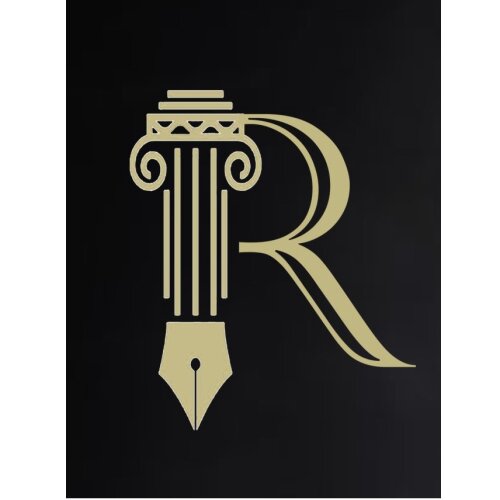Best Job Discrimination Lawyers in Lilongwe
Share your needs with us, get contacted by law firms.
Free. Takes 2 min.
List of the best lawyers in Lilongwe, Malawi
About Job Discrimination Law in Lilongwe, Malawi
Job discrimination in Lilongwe, Malawi, refers to the unfair treatment of employees or job applicants based on specific characteristics such as gender, race, age, disability, religion, or other protected attributes. The legal framework in Malawi aims to ensure equal opportunity and fairness in the workplace, prohibiting discriminatory practices in recruitment, promotion, termination, and other employment aspects. The country's laws are designed to protect individuals from being treated unjustly and to promote a more inclusive work environment.
Why You May Need a Lawyer
Individuals may require legal assistance in job discrimination cases for several reasons. Common situations include being denied a job or promotion due to race or gender, enduring harassment in the workplace, or facing unjust termination based on discrimination. A lawyer can offer guidance and support in understanding if you have a viable claim, gather necessary evidence, represent you in negotiations or court, and ensure your rights are upheld throughout the legal process.
Local Laws Overview
In Lilongwe, Malawi, job discrimination is primarily addressed through the Employment Act and other relevant legislation aimed at promoting fairness in the workplace. Key aspects of these laws include:
- Prohibition of discrimination based on race, gender, age, disability, religion, or other protected characteristics.
- Requirements for employers to provide equal opportunities and fair treatment in employment practices.
- Mechanisms for addressing grievances, including formal complaints and potential legal action.
- Mandates for employers to implement policies that prevent discrimination and promote inclusivity.
Frequently Asked Questions
What constitutes job discrimination in Malawi?
Job discrimination in Malawi involves unfair treatment or harassment in employment based on certain characteristics such as race, gender, age, or disability.
How can I prove job discrimination?
Proving job discrimination can involve demonstrating patterns of unfair treatment, providing documents or communications that show bias, and witness testimonies.
What should I do if I experience discrimination at work?
If you experience discrimination, document the incidents, report them to your employer, and consider consulting a lawyer for legal advice and potential actions.
Are employers required to have anti-discrimination policies?
Yes, employers are encouraged to implement anti-discrimination policies to promote fairness and inclusivity in the workplace.
Can I be fired for filing a discrimination complaint?
No, retaliatory actions such as termination for filing a complaint are prohibited by law. Such actions would constitute a separate legal violation.
What are the possible outcomes of a discrimination lawsuit?
Outcomes can vary but may include compensation, reinstatement, policy changes at the workplace, or other remedies as deemed appropriate by the court.
How long do I have to file a discrimination complaint?
It's advisable to file a discrimination complaint promptly. Specific time limits for filing vary, so seek legal guidance as soon as possible.
Is mediation an option in discrimination cases?
Yes, mediation can be a viable option to resolve discrimination disputes without going to court, focusing on mutual agreement and resolution.
What is the role of the Labor Office in discrimination cases?
The Labor Office can assist by facilitating communication between the employee and employer and providing guidance on legal obligations and rights.
Can I represent myself in a job discrimination case?
While you can represent yourself, having a lawyer can be beneficial due to their understanding of the law and experience in handling similar cases.
Additional Resources
For further assistance, consider reaching out to the following resources:
- The Ministry of Labor for support and information on employment rights.
- The Labor Office in Lilongwe for assistance with filing complaints and understanding legal procedures.
- Non-governmental organizations focused on labor rights and workplace equality.
Next Steps
If you believe you have been a victim of job discrimination and need legal assistance, consider taking the following steps:
- Document each instance of discrimination, noting dates, times, locations, and involved parties.
- Report the issue to your employer or human resources department.
- Contact a lawyer specializing in employment law for a consultation to discuss your situation and potential legal actions.
- Consider pursuing a formal complaint through the Labor Office if resolution with your employer is unattainable.
- Stay informed about your rights and the ongoing legal process with the assistance of your legal advisor.
Lawzana helps you find the best lawyers and law firms in Lilongwe through a curated and pre-screened list of qualified legal professionals. Our platform offers rankings and detailed profiles of attorneys and law firms, allowing you to compare based on practice areas, including Job Discrimination, experience, and client feedback.
Each profile includes a description of the firm's areas of practice, client reviews, team members and partners, year of establishment, spoken languages, office locations, contact information, social media presence, and any published articles or resources. Most firms on our platform speak English and are experienced in both local and international legal matters.
Get a quote from top-rated law firms in Lilongwe, Malawi — quickly, securely, and without unnecessary hassle.
Disclaimer:
The information provided on this page is for general informational purposes only and does not constitute legal advice. While we strive to ensure the accuracy and relevance of the content, legal information may change over time, and interpretations of the law can vary. You should always consult with a qualified legal professional for advice specific to your situation.
We disclaim all liability for actions taken or not taken based on the content of this page. If you believe any information is incorrect or outdated, please contact us, and we will review and update it where appropriate.









